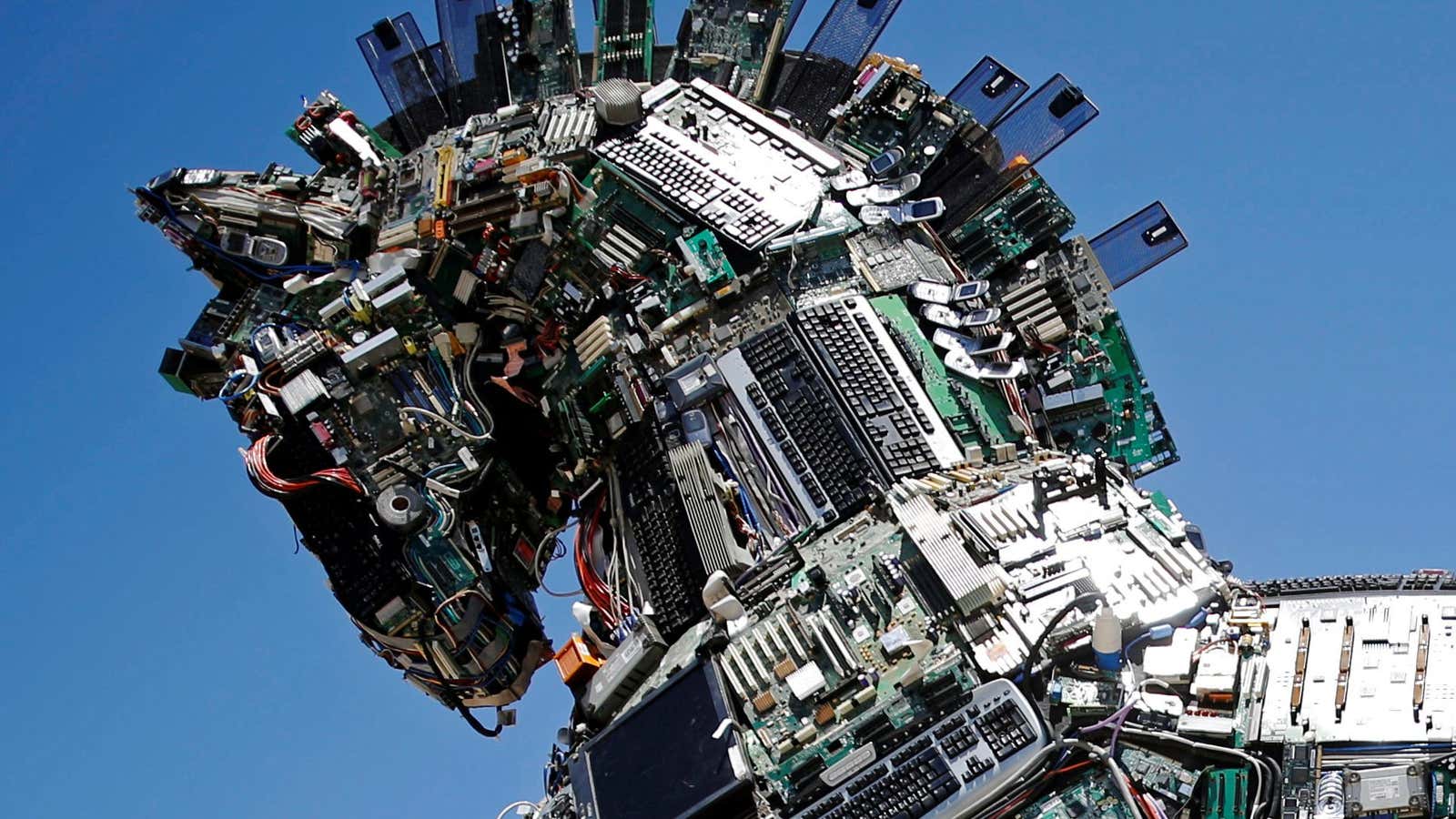The air-travel industry is caught up in Samsung’s global recall of its Galaxy Note 7 following reports of the phone exploding or catching fire.
Fearing battery fires on board, the US Federal Aviation administration on Sept. 8 warned travelers against turning on, charging, or stowing the Samsung phablet. Several Australian airlines—Qantas, Jetstar, and Virgin Australia—echoed the FAA’s guidance and banned passengers from charging or using the phones on board. (The US Consumer Product Safety Commission and Samsung both say people shouldn’t use or charge the Galaxy Note 7—at all.)
But air-travel authorities and airlines have been slow to prohibit the phones altogether. Representatives for American Airlines, Southwest Airlines and Virgin America told Quartz that customers should follow the FAA’s recommendations but they have not issued bans.
And even if the phones become verboten, a ban would be nearly impossible to effectively enforce. Smartphones are ubiquitous. A ban on the Samsung Galaxy Note 7 would put pressure on security officers to quickly determine the make and model of prohibited phones (“No, this is a Samsung Galaxy S6 Edge, actually”) before confiscating them. The busy flight crew would have a similar challenge.
Many airlines have banned hoverboards over similar fears of battery fires that sparked the Samsung recall. But hoverboards are large and easy to spot, like other items the Transportation Security Administration confiscates, such as cane swords and batarangs.
But not everyone has hoverboard or batarang—unlike a smartphone.
